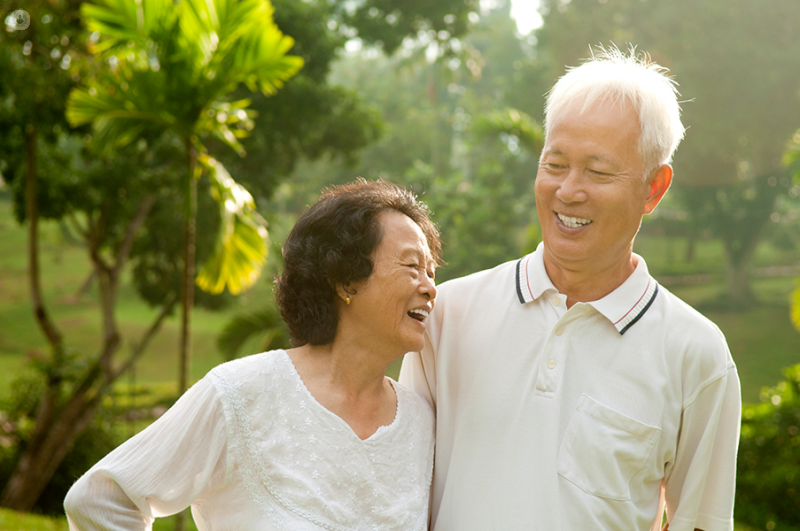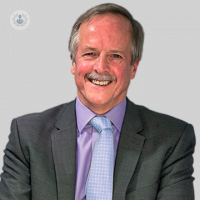Avoiding falls: Eight strategies anyone with osteoporosis can follow
Escrito por:Most of us don’t have to worry about falls and fractures, but if we have a tendency towards osteoporosis or thin bones, then we just have to be a little bit more careful. This article explains the most effective steps you can take to avoid falls.

Osteoporosis: A quick guide
Osteoporosis is a condition of the bones where they become a little thin and at the end of the day somewhat porous, which is where the name comes from.
The density of our bones is lost in all of us as we get older, but when it gets down to a critical volume, that is defined as “osteoporosis”. We measure bone density using a DEXA scan and, if you have osteoporosis, it should be a consultant with an expertise in osteoporosis who looks at the scan and interprets the results.
Why do people with osteoporosis need to avoid falls?
Normally, to break a bone you would have to fall from a significant height.
If you have osteoporosis, however, you are more prone to fragility fractures. These are fractures which occur after a fall from less than standing height. If you trip, hold out your arm, and break that arm, that would be classed as a fragility fracture.
So if you’re diagnosed with osteoporosis, knowing how to avoid falls is extremely important.
How to avoid falls
- Test your eyes regularly – make sure you’ve had your eyes tested recently and that your eyes have been corrected as much as possible with glasses. It's important to detect any eye problems early on. Cataracts, for example, are common in older age and make you much more prone to falls.
- Make sure your footwear is good – wear well-fitting shoes with any laces properly tied up.
- Check the medication you’re on – if you're on medication for blood pressure or for your heart, it's important to be sure that these are regularly tested and that you still need them, because some drugs do make us more prone to falls as we get older.
- Make your home environment safe – check for loose wires or cables, or loose carpets in the home which are easy to trip over.
- Avoid situations where you might be pushed – large events such as a football match can involve huge crowds and the risk of falling from being pushed.
- Avoid sports that involve a high risk of bone injury – this can depend on you and your levels of fitness but, to use a silly example, you would not go bungee jumping if you had osteoporosis!
- Take extra care on particularly cold days – icy pavements can be treacherous, particularly if you have osteoporosis. Consider driving where possible, or using a stick.
Do I need a walking stick?
A walking stick can give you a lot of extra support and stability, and many people find them useful. Ultimately, it’s a personal choice as to whether or not to use one, but you may find it particularly useful for navigating icy pavements or if you have weakness or stiffness in your lower legs due to arthritis.


